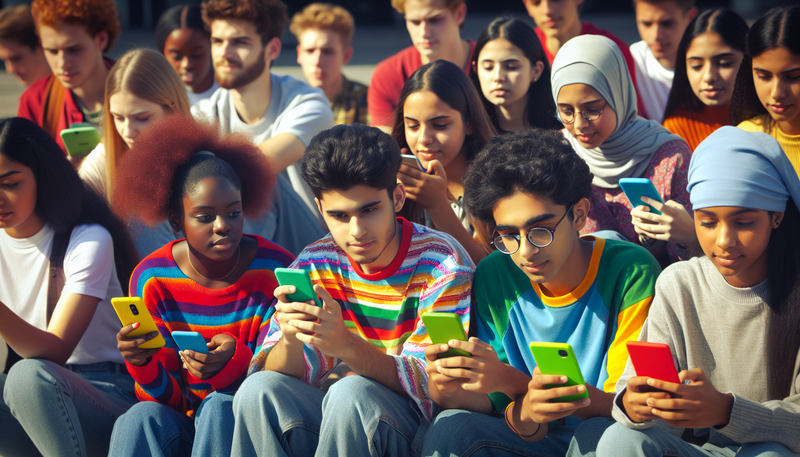Smartphones are a revolution in electronics, a powerful tool that allows you to make calls, send messages, browse the internet, take photos, and run apps, all from the palm of your hand. Of course you know all of this today, but this would have been some far-out witchcraft even 25 years ago! Smartphones have become an essential part of modern life.
Smartphones have several clever attributes that make them indispensable. Their touchscreen interfaces allow for intuitive interactions, while their app ecosystems provide versatility and customization. Internet connectivity keeps us connected to the world, and high-quality cameras enable us to capture life's moments. Their portability makes them easy to carry and use anywhere.
The word "phone" is short for "telephone," which comes from the Greek words "tele" (far) and "phone" (voice). The term was coined by Alexander Graham Bell, who invented the telephone in 1876. The word "phone" is pronounced as [fōn], with a long "o" sound and a silent "e" at the end.
Smartphones have transformed the way we communicate, but there are concerns about their impact on mental health and social interactions. As Edward Teller noted, "The science of today is the technology of tomorrow," and smartphones have driven innovation in areas like augmented reality, mobile payments, and health tracking. Alan Kay's observation that "Technology is anything that wasn’t around when you were born" rings true, as the first smartphone, the IBM Simon, was introduced in 1992, but it wasn't until the launch of the iPhone in 2007 that smartphones became mainstream. As Kay also said, "The best way to predict the future is to invent it," and the smartphone industry continues to evolve, with new technologies like 5G, foldable screens, and advanced AI being integrated into devices.
When it comes to smartphones, two of the most popular operating systems are Android and iOS (used by iPhones). Android, developed by Google, is an open-source platform that powers a wide range of devices from various manufacturers, offering users a high degree of customization and flexibility. On the other hand, iOS, developed by Apple, is a closed ecosystem that provides a seamless and tightly integrated experience across its devices, with a focus on security and privacy. Both platforms have their strengths and appeal to different user preferences, with Android offering more variety and iOS emphasizing a streamlined user experience.
Smartphones clever attributes, combined with the rich history and meaning behind the word "phone," make them an essential part of our modern world. As we continue to innovate and invent new technologies, smartphones will undoubtedly play a key role in shaping our future. It seems a natural evolution to go from a flip-phone to a Blackberry to an iPhone 16, but it's difficult to predict what can possibly come next. What would an iPhone XXX or 30, what would that even look like? It could be insane virtual reality, the Princess Lea via R2D2 'hologram', or perhaps a level of highly-functioning conciousness we maintain 24 hours a day, we no longer 'sleep' like the rest of the animals. It'll no doubt be exciting!


